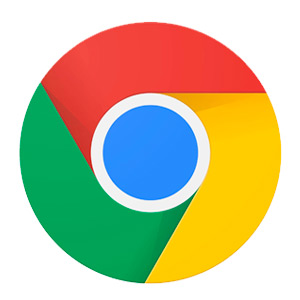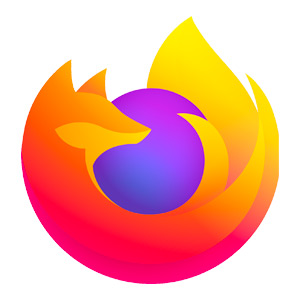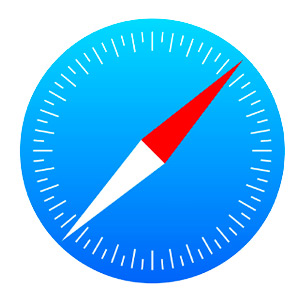Decoding Digital Usage: How Much Internet Data Do I Need?
We live in the Information Age, and digital data is increasingly more important in our day-to-day lives. It keeps us connected, informed, and entertained. Beyond ensuring you are connected, it’s important to know what you use the internet for to answer the question, “How much internet data do I need?”
Making sure you have the right amount of internet data is vital for many reasons, including:
- Cost management: Many internet service provider (ISP) plans come with data caps. That is, you’re only allotted a certain amount of data each month. Going over this limit can result in additional charges, reduced internet speeds, or both. Knowing how much internet data do I need can help you choose the right plan for your usage, which can help you avoid overage fees or paying for an expensive plan you don’t need.
- Speed requirements: Various online activities use data at different rates. Streaming videos or playing online games uses significantly more data than chats, reading through emails, or browsing articles on the web. Knowing your data needs can ensure your internet speed and data plan can handle your online activities without slowdowns.
- Network performance: If you have multiple users or devices in your home or office, your data usage will be heavier. This can impact network performance, especially during peak times. Knowing how much data you use can help you maintain a stable connection when you need it most.
- Choosing the right plan: Your internet provider likely offers a range of plans with different speed and data options. You don’t want to overpay for data you don’t need or face restrictions if you underestimate your data usage.
To accurately determine your data needs, you can track your usage over time through your internet provider or a third-party application. You can also manually monitor your data usage, but this can be tedious.
The insights will allow you to better adjust your plan or habits to align with your actual data consumption.
What Data Speeds Mean
Data speed, which is often referred to as internet speed or bandwidth, measures how much digital information can be transmitted from the internet to your device (download speed) or from your device to the internet (upload speed) within a specific time limit. This speed is typically measured in bits per second (bps), with higher quantities expressed in kilobits per second (Kbps), megabits per second (Mbps), or gigabits per second (Gbps).
Internet speed can significantly affect your online experience, impacting how quickly web pages load, how smoothly videos stream, and how stable a video conference is.
Data speed can be determined by the type of connection, with fiber optic being the fastest, followed by DSL, cable, and satellite. Network congestion, or how many people are on your network, can also have a significant effect. Finally, the distance from the server or obstructions between the server and your device can also impact data speed.
To picture data speed more easily, consider daily water usage. Different activities use different amounts of water. For instance, filling a bathtub uses more water than washing your hands or brushing your teeth. Likewise, various online activities use different amounts of data. Streaming a movie in high definition could be likened to filling a swimming pool. Sending an email, on the other hand, is more like filling a cup. Understanding how much water (data) each activity uses can help you better manage your overall consumption and avoid running out or incurring additional costs.
The Math: How Much Data Do You Use?
To estimate how much data do I need, it can help to look at average data usage rates for common tasks. (Do, however, keep in mind that rates vary widely depending on the quality of content, specific activities within a category, the applications you’re using, etc.).
Here’s a rough guide to help you calculate your usage:
- Sending and receiving emails: 10 to 500 KB, depending on whether there are attached files and how large they are.
- Web browsing: 1 – 3 MB per page, though pages with lots of multimedia content can use more.
- Video streaming: 0.7 GM per hour for standard definition, 2 – 3 GB per hour for high definition, and 7 – 8 GB per hour for ultra-high def.
- Music streaming: ~40 – 70 MB per hour for normal quality, jumping to 700 or more per hour for high quality.
- Gaming: Typically, around 10 – 30 MB per hour for casual gaming. Competitive gamers, however, can use up to 150 MB per hour, not including downloads and updates, which can be significantly more.
- Conference calls (with video): ~300 to 600 MB per hour for standard definition. With high definition, it can climb to 1.2 – 1.5 GB per hour.
- Social media: There is a wide variation, but you may estimate usage at around 150 MB per hour on average. Posting photos or videos can dramatically increase usage.
- Downloads and updates, including software, apps, and movies, can range from a few MB to several GB.
A typical user in a typical day may send and receive around 30 emails at 500 KB/email, which equals 15 MB. They also likely browse the web for at least a couple of hours (2 hours X 1.5 MB/minute = 180 MB). High-definition video streaming for an hour would add 3 GB. Add in a couple of hours of online gaming at 75 MB/hour (150 MB) and a one-hour video call, using .45 GB on standard definition. The total would be somewhere around 3.785 GB per day.
Again, you can calculate your personal usage, but the numbers are approximate. To estimate data usage more accurately, consider using a data monitoring tool provided by your operating system or internet service provider.
Choosing Your Data Plan for How Much Internet Data Do I Need
Once you’ve got a fairly accurate grasp of how much internet data do I need, you can better choose the right data plan for you. If you check a few emails a day, read a couple of articles on the web, and stream a movie or two, your data needs will be less than someone who sends and receives large data files by email, spends hours on conference calls each week, and enjoys watching high-definition movies or logging on for competitive gaming to relax in the evenings.
Knowing your usage is the best way to choose a plan that provides the data you need without costing you extra for data you’ll likely never use.





